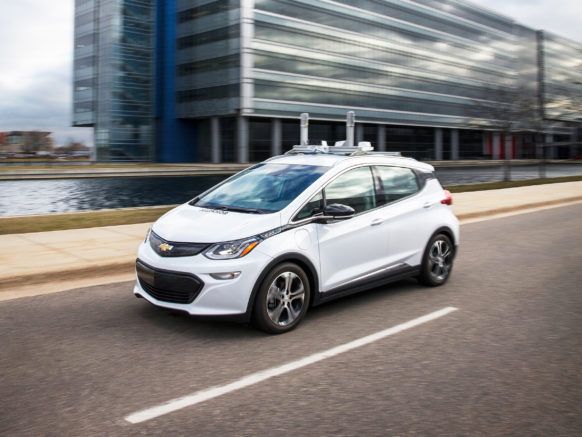General Motors plans commercial, autonomous robot-taxi service by 2019
In a direct challenge to Ford, Waymo and Uber, General Motors says it plans to launch fleets of fully-autonomous taxis in 2019.
The vehicles will not include a human driver, yet will be able to navigate themselves around the most complex of urban environments - where today's self-driving technologies struggle the most.
GM's robotic taxi roadmap is shorter than that of rival Ford, which has previously said it will have a commercial car produced without a steering wheel or pedals by 2021. Waymo, formerly a Google company and now operated by Google parent Alphabet, also expects to offer fully autonomous driving by the start of the next decade, along with Uber and Tesla.
Dan Ammann, president of GM, told investors on December 30 that the potential revenue from a single autonomous car working as a taxi is far greater than that of comparable cars sold by GM today. The robo-taxi could earn revenue in the "several hundred thousands of dollars" region, Ammann said, compared to the $30,000 average revenue earned from GM cars sold today.
The GM president added: "If we continue on our current rate of change we will be ready to deploy this technology, in large scale, in the most complex environments, in 2019."
GM is a relative newcomer to the autonomous car industry. While Google has been experimenting with driverless vehicles since 2009, GM only secured a toehold in the industry when it acquired startup Cruise Automation for an estimated $1bn in 2016.
But GM, despite its vast experience in the traditional automotive sector, has its work cut out to catch upstart technology companies like Waymo and Uber. The former recently showed off its cars driving without a safety driver for the first time, and said such vehicles will provide rides to members of the public in the next few months
Uber, despite its many issues through 2017, is currently offering a free, autonomous ride-sharing service in Pittsburgh and Phoenix, albeit with a safety driver.
Tesla, which currently sells electric cars with some autonomous features, but says they already contain the hardware to one day be fully autonomous, also has its eyes on running a driverless taxi service in the coming years, provided by owners' cars operating while they are at work, asleep or on holiday.
